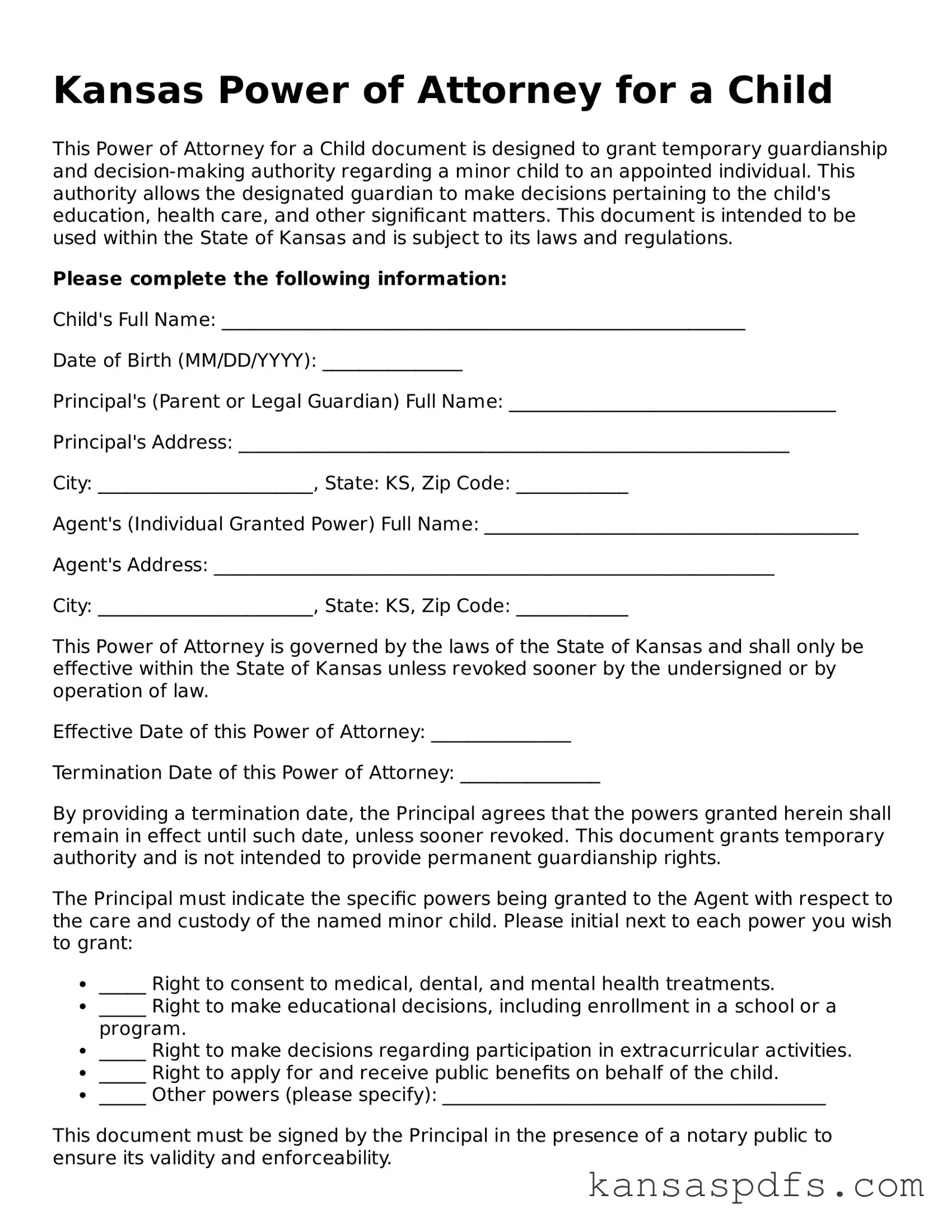Kansas Power of Attorney for a Child
This Power of Attorney for a Child document is designed to grant temporary guardianship and decision-making authority regarding a minor child to an appointed individual. This authority allows the designated guardian to make decisions pertaining to the child's education, health care, and other significant matters. This document is intended to be used within the State of Kansas and is subject to its laws and regulations.
Please complete the following information:
Child's Full Name: ________________________________________________________
Date of Birth (MM/DD/YYYY): _______________
Principal's (Parent or Legal Guardian) Full Name: ___________________________________
Principal's Address: ___________________________________________________________
City: _______________________, State: KS, Zip Code: ____________
Agent's (Individual Granted Power) Full Name: ________________________________________
Agent's Address: ____________________________________________________________
City: _______________________, State: KS, Zip Code: ____________
This Power of Attorney is governed by the laws of the State of Kansas and shall only be effective within the State of Kansas unless revoked sooner by the undersigned or by operation of law.
Effective Date of this Power of Attorney: _______________
Termination Date of this Power of Attorney: _______________
By providing a termination date, the Principal agrees that the powers granted herein shall remain in effect until such date, unless sooner revoked. This document grants temporary authority and is not intended to provide permanent guardianship rights.
The Principal must indicate the specific powers being granted to the Agent with respect to the care and custody of the named minor child. Please initial next to each power you wish to grant:
- _____ Right to consent to medical, dental, and mental health treatments.
- _____ Right to make educational decisions, including enrollment in a school or a program.
- _____ Right to make decisions regarding participation in extracurricular activities.
- _____ Right to apply for and receive public benefits on behalf of the child.
- _____ Other powers (please specify): _________________________________________
This document must be signed by the Principal in the presence of a notary public to ensure its validity and enforceability.
In Witness Whereof, the Principal has executed this Power of Attorney on the date provided below.
Date: _______________
Principal's Signature: ___________________________________________________
State of Kansas
County of _____________________
Subscribed and sworn before me, a Notary Public, on this __________ day of ___________, 20____.
Notary Public's Signature: ___________________________________
My Commission Expires: ________________

